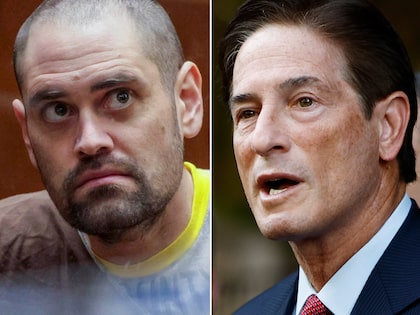Celebrity News July 18, 2020
John Lewis, Civil Rights Icon, Dead at 80
 Getty Images
Getty Images
John Lewis, a monumental figure in civil rights who was one of the original Freedom Riders — and who later became a longtime congressman — died late Friday after battling pancreatic cancer since last year. He was 80.
His death was confirmed in a statement by Speaker of the House Nancy Pelosi, who said, "Today, America mourns the loss of one of the greatest heroes of American history: Congressman John Lewis, the Conscience of the Congress."
 Getty
Getty
George Floyd Remembered at Memorial Service in Minneapolis
View StoryDescribing his iconic life, she went on, “John Lewis was a titan of the civil rights movement whose goodness, faith and bravery transformed our nation — from the determination with which he met discrimination at lunch counters and on Freedom Rides, to the courage he showed as a young man facing down violence and death on Edmund Pettus Bridge, to the moral leadership he brought to the Congress for more than 30 years."
She called his service in Congress "fearless in his pursuit of a more perfect union, whether through his Voter Empowerment Act to defend the ballot, his leadership on the Equality Act to end discrimination against LGBTQ Americans or his work as a Senior Member of the Ways and Means Committee to ensure that we invest in what we value as a nation."
In an essay for Medium, President Barack Obama called Lewis his "hero," writing, "John Lewis — one of the original Freedom Riders, chairman of the Student Nonviolent Coordinating Committee, the youngest speaker at the March on Washington, leader of the march from Selma to Montgomery, Member of Congress representing the people of Georgia for 33 years — not only assumed that responsibility, he made it his life's work. He loved this country so much that he risked his life and his blood so that it might live up to its promise. And through the decades, he not only gave all of himself to the cause of freedom and justice, but inspired generations that followed to try to live up to his example."
Obama, who bestowed the Presidential Medal of Freedom on Lewis in 2011, went on to say, "Not many of us get to live to see our own legacy play out in such a meaningful, remarkable way. John Lewis did. And thanks to him, we now all have our marching orders — to keep believing in the possibility of remaking this country we love until it lives up to its full promise."
Lewis's presence in the civil rights movement can not be overstated. He led the March 7, 1965, march across the Edmund Pettus Bridge in Selma, Alabama, where images of troopers beating Lewis and other marchers led to the swift passage of the Voting Rights Act on August 6, 1965. The law struck down literacy and other segregationist tactics that had been employed to disenfranchise Black Americans.
Lewis was tireless in his efforts, and was arrested some 40 times in the '60s, jailed, and beaten.
Born the son of sharecroppers in rural Alabama on February 21, 1940, he became a college graduate, was in charge of the Voter Education Project, and ran unsuccessfully for Congress in 1977. In 1981, he won a seat on the Atlanta City Council. In 1986, he ran for Congress again, this time against his friend, fellow civil rights icon Julian Bond. Lewis won in an upset and remained in Congress, representing Georgia's 5th district, until his death, a liberal lion who was a prominent voice against military spending, against the Persian Gulf War, against the North American Free Trade Agreement, and in favor of the impeachment of President Donald Trump, who rebuked him.
Lewis was preceded in death by his wife Lillian. He is survived by several siblings and by his son, John-Miles Lewis.




















